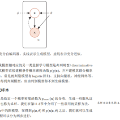Simulations of biophysical systems have provided a huge contribution to our fundamental understanding of human physiology and remain a central pillar for developments in medical devices and human machine interfaces. However, despite their successes, such simulations usually rely on highly computationally expensive numerical modelling, which is often inefficient to adapt to new simulation parameters. This limits their use in dynamic models of human behavior, for example in modelling the electric fields generated by muscles in a moving arm. We propose the alternative approach to use conditional generative models, which can learn complex relationships between the underlying generative conditions whilst remaining inexpensive to sample from. As a demonstration of this concept, we present BioMime, a hybrid architecture that combines elements of deep latent variable models and conditional adversarial training to construct a generative model that can both transform existing data samples to reflect new modelling assumptions and sample new data from a conditioned distribution. We demonstrate that BioMime can learn to accurately mimic a complex numerical model of human muscle biophysics and then use this knowledge to continuously sample from a dynamically changing system in real-time. We argue that transfer learning approaches with conditional generative models are a viable solution for dynamic simulation with any numerical model.
翻译:生物物理系统的模拟为我们对人体生理学的基本理解作出了巨大贡献,并且仍然是医学设备和人体机器界面发展的核心支柱。然而,尽管取得了成功,但这种模拟通常依赖高计算成本的数值模型,而这种模型往往无法适应新的模拟参数。这限制了其在动态人类行为模型中的使用,例如用于模拟肌肉在移动臂中产生的电场。我们提议了使用有条件的基因模型的替代方法,这种模型可以学习基本基因质变条件之间的复杂关系,而同时又能保持低廉的样本。作为这个概念的示范,我们提出了BiOMime,这是一种混合结构,将深潜变异模型的要素和有条件的对抗性培训结合起来,以构建一种基因模型,既可以改变现有的数据样本以反映新的模型假设,又可以从一个有条件的分布中抽样新的数据。我们证明BioMime可以学会准确模拟人类肌肉生物物理的复杂数字模型,然后利用这一知识从实时动态变化的系统不断取样。我们提出,使用有条件基因变异模型的转移学习方法是任何数字模型的动态模拟的可行解决办法。




